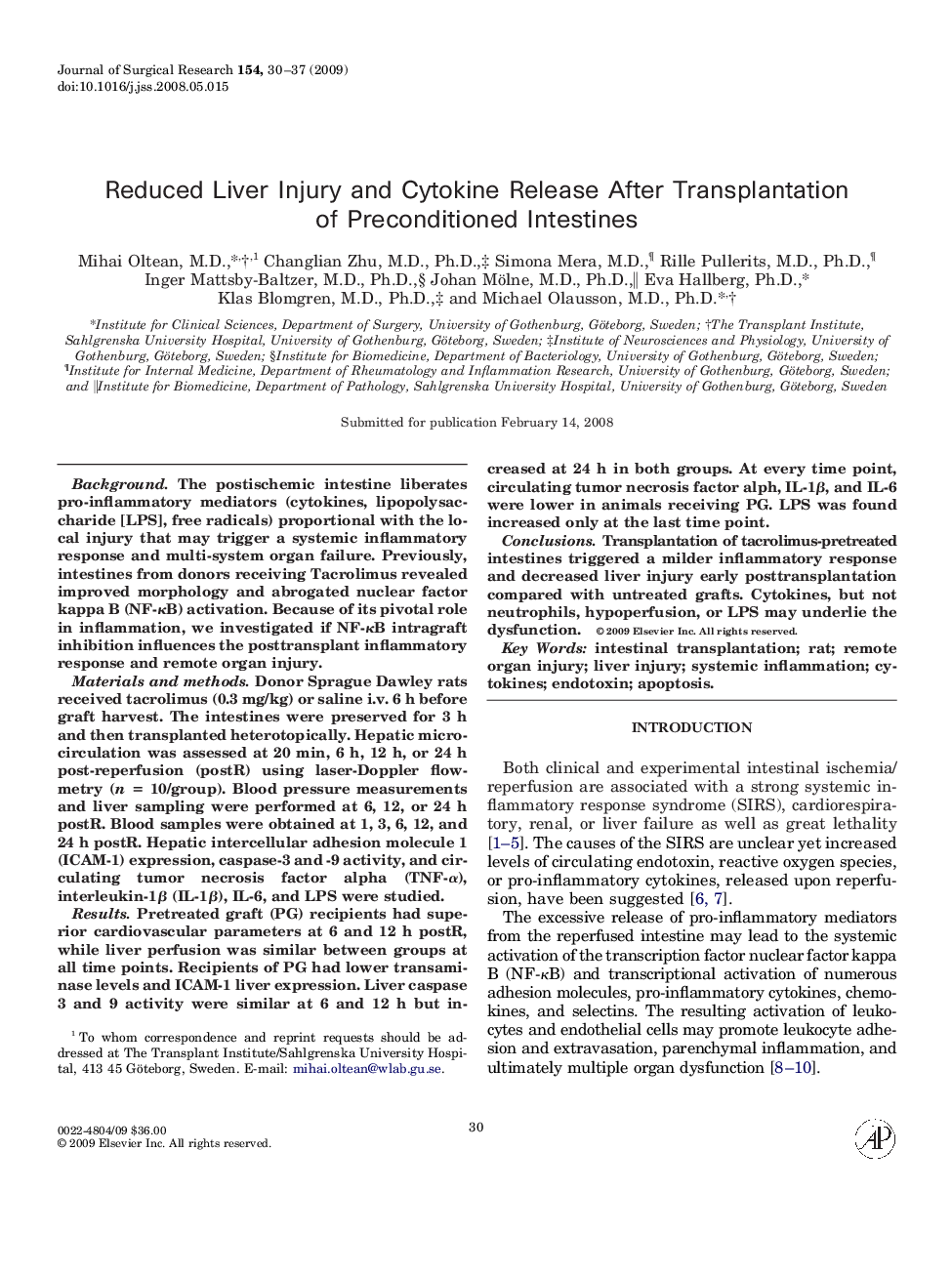| Article ID | Journal | Published Year | Pages | File Type |
|---|---|---|---|---|
| 4303812 | Journal of Surgical Research | 2009 | 8 Pages |
BackgroundThe postischemic intestine liberates pro-inflammatory mediators (cytokines, lipopolysaccharide [LPS], free radicals) proportional with the local injury that may trigger a systemic inflammatory response and multi-system organ failure. Previously, intestines from donors receiving Tacrolimus revealed improved morphology and abrogated nuclear factor kappa B (NF-κB) activation. Because of its pivotal role in inflammation, we investigated if NF-κB intragraft inhibition influences the posttransplant inflammatory response and remote organ injury.Materials and methodsDonor Sprague Dawley rats received tacrolimus (0.3 mg/kg) or saline i.v. 6 h before graft harvest. The intestines were preserved for 3 h and then transplanted heterotopically. Hepatic microcirculation was assessed at 20 min, 6 h, 12 h, or 24 h post-reperfusion (postR) using laser-Doppler flowmetry (n = 10/group). Blood pressure measurements and liver sampling were performed at 6, 12, or 24 h postR. Blood samples were obtained at 1, 3, 6, 12, and 24 h postR. Hepatic intercellular adhesion molecule 1 (ICAM-1) expression, caspase-3 and -9 activity, and circulating tumor necrosis factor alpha (TNF-α), interleukin-1β (IL-1β), IL-6, and LPS were studied.ResultsPretreated graft (PG) recipients had superior cardiovascular parameters at 6 and 12 h postR, while liver perfusion was similar between groups at all time points. Recipients of PG had lower transaminase levels and ICAM-1 liver expression. Liver caspase 3 and 9 activity were similar at 6 and 12 h but increased at 24 h in both groups. At every time point, circulating tumor necrosis factor alph, IL-1β, and IL-6 were lower in animals receiving PG. LPS was found increased only at the last time point.ConclusionsTransplantation of tacrolimus-pretreated intestines triggered a milder inflammatory response and decreased liver injury early posttransplantation compared with untreated grafts. Cytokines, but not neutrophils, hypoperfusion, or LPS may underlie the dysfunction.
